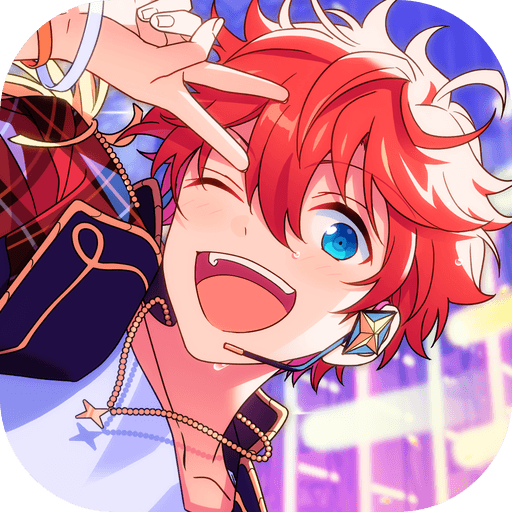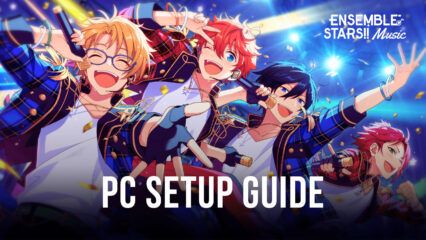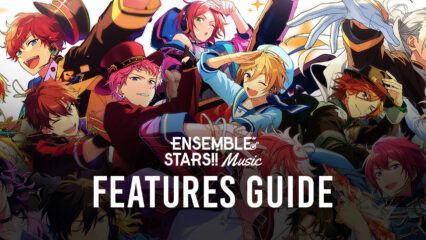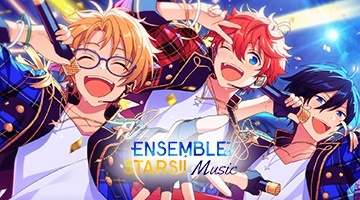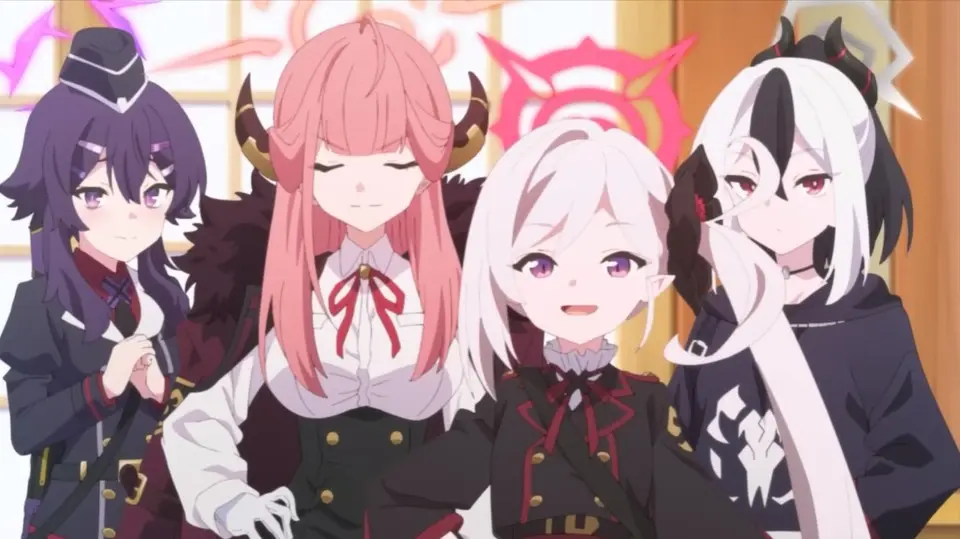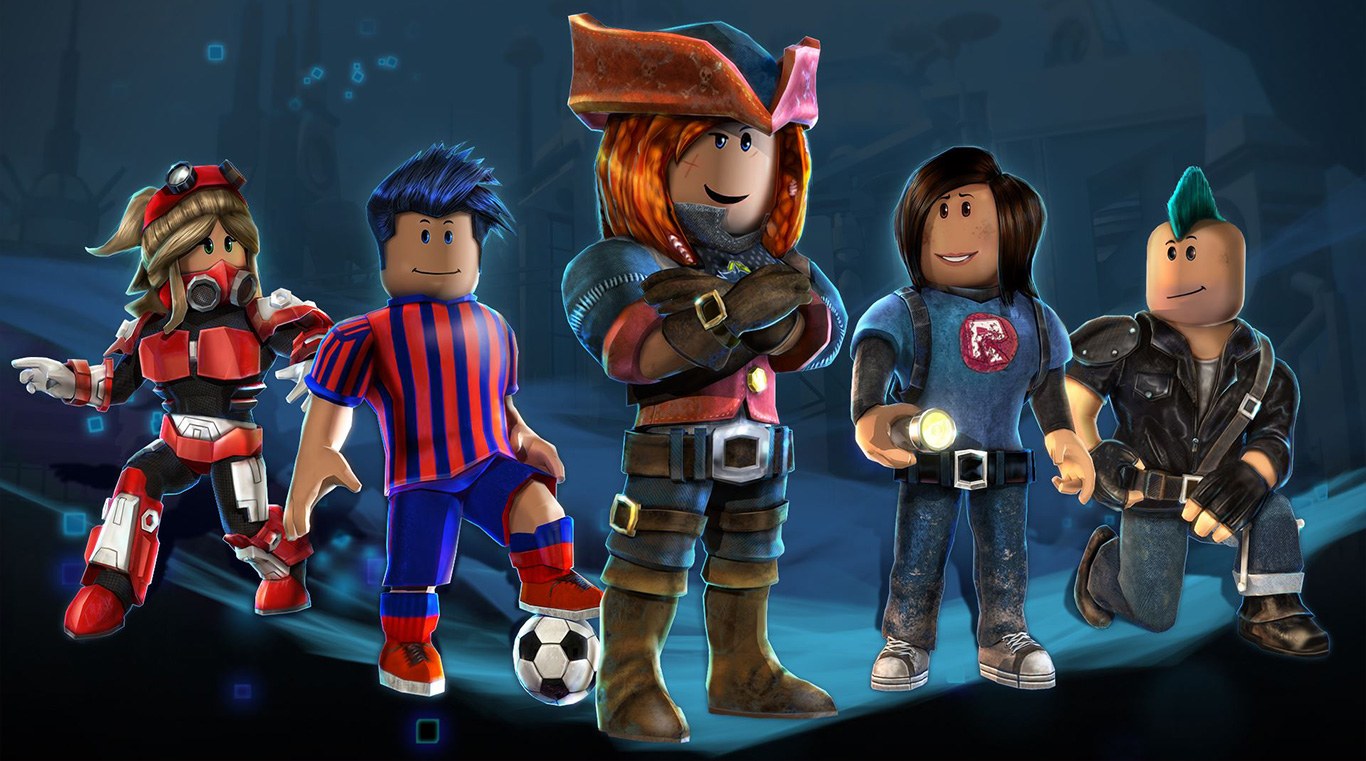Be a Star: A Beginner’s Guide to Ensemble Stars Music
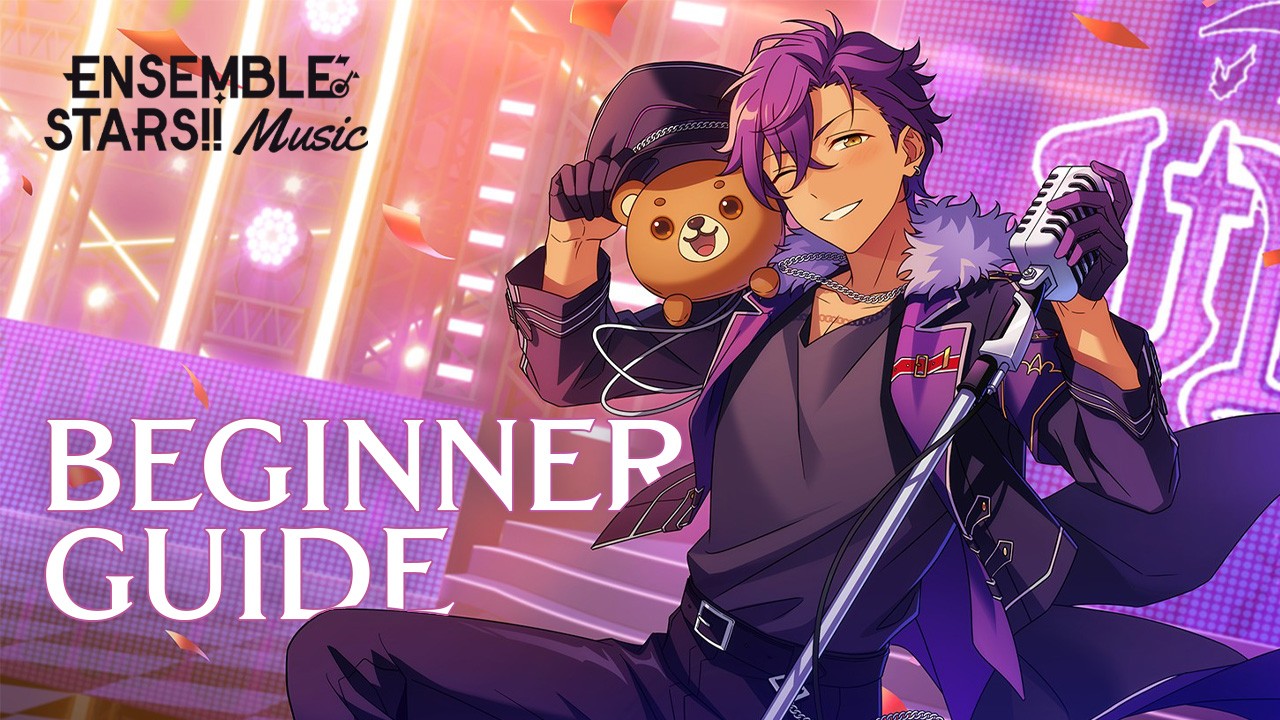
If you have played rhythm games like Hatsune Miku: Colorful Stage, then you will undoubtedly feel the same joy when you play Ensemble Stars Music by HappyElements. In this game, you get to experience the life of managing the Ensemble Stars, a group of young male idols starting their journey into the entertainment industry. Episodes of excitement mixed with episodes of grief await them as they dive through the tough industry to reach a bright future. The game features exquisite 3D graphics and fully voiced dialogue.
If you want to join the adventure of the Ensemble Stars now, check out this installation guide to learn how to play the game on your PC or Mac with BlueStacks. Once everything is set up, let’s learn the basic mechanics of the game.
Table of Contents
Units and Artists
The game features a multitude of characters that you can recruit into your team. In fact, the first thing you do in the game is select from a vast selection of starter characters.
Each artist belongs to a unit. A unit is like the agency that the artist belongs to. In the game, you get to expand your group by recruiting artists that belong to different units. Some artists are more expensive and more skilled than the others.
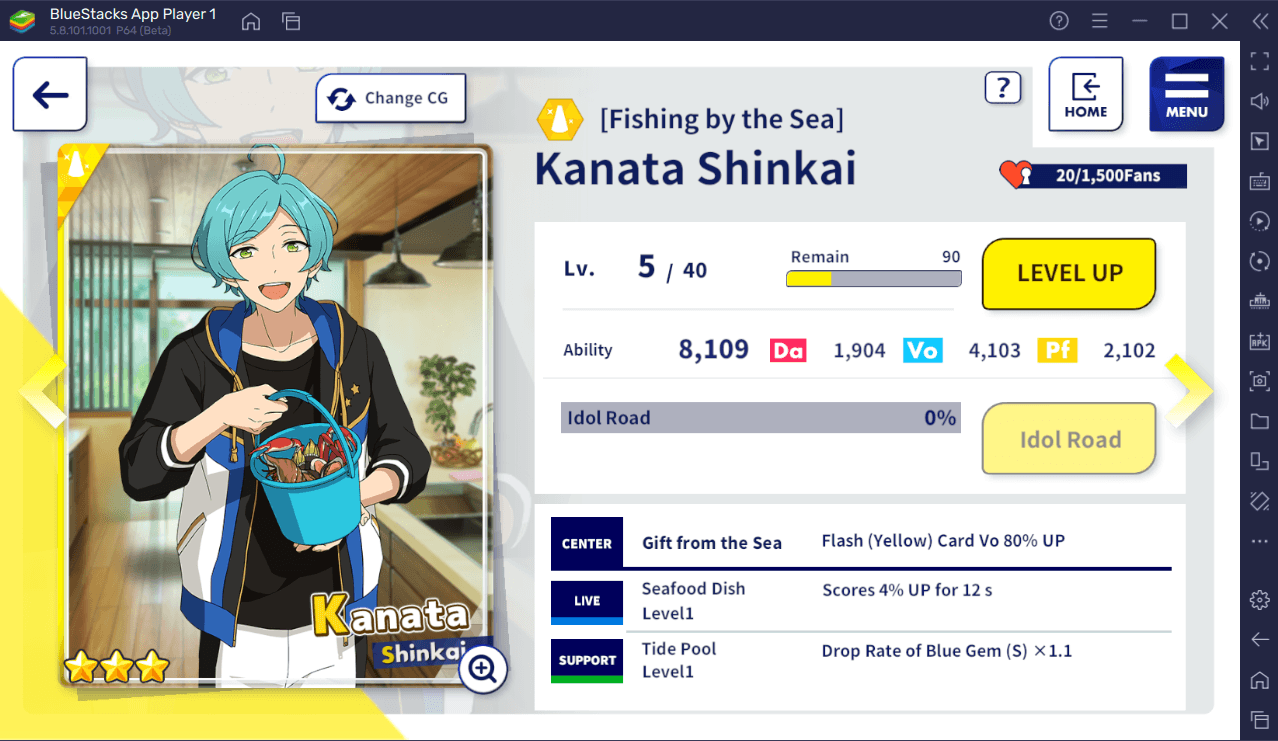
- Star Maker Production – abbreviated as STAR PRO, this idol production office was established by an alumnus of Yumenosaki Academy, a prominent school with a recognized idol course. STAR PRO is known for its “big family” atmosphere.
- Cosmic Production – abbreviated as COS PRO, this agency is operated by Reimei Academy and Shuetsu Academy, which focus on recruiting young talents. COS PRO takes the quality of idols seriously. However, COS PRO is currently slightly stagnant but nevertheless still houses high-quality idols.
- Rhythm Link – called Rhyth Lin for short, this moderately-sized agency gathers bands, creative singers, and other types of artists. They are more focused on music production rather than idol production per se.
- New Dimension – abbreviated as NEW DI, this neophyte agency does not have an overwhelming number of idols, but they are expanding in theater operation, actor cultivation, and program production. It is a very small company, but it indeed has plenty of potential.
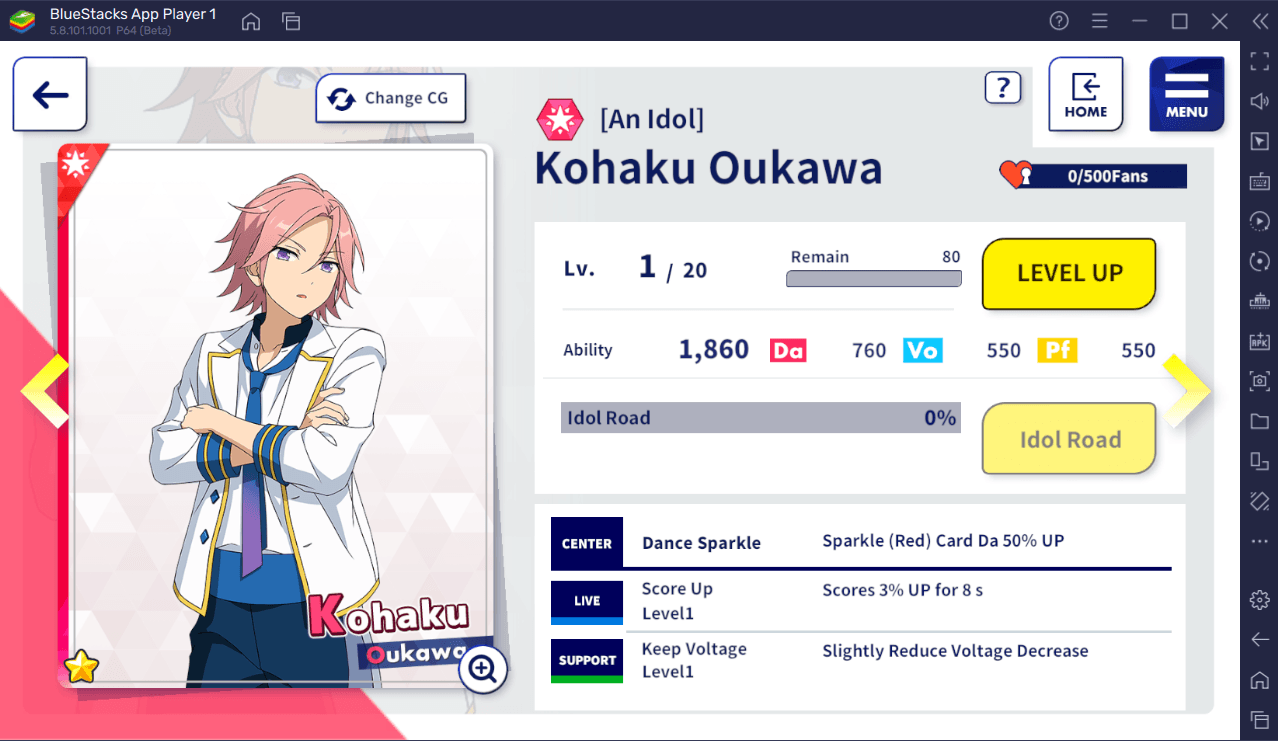
Scouting Artists
To recruit new artists, you must scout for them. In Ensemble Stars Music, artists come in the form of cards that you “pull” by chance.
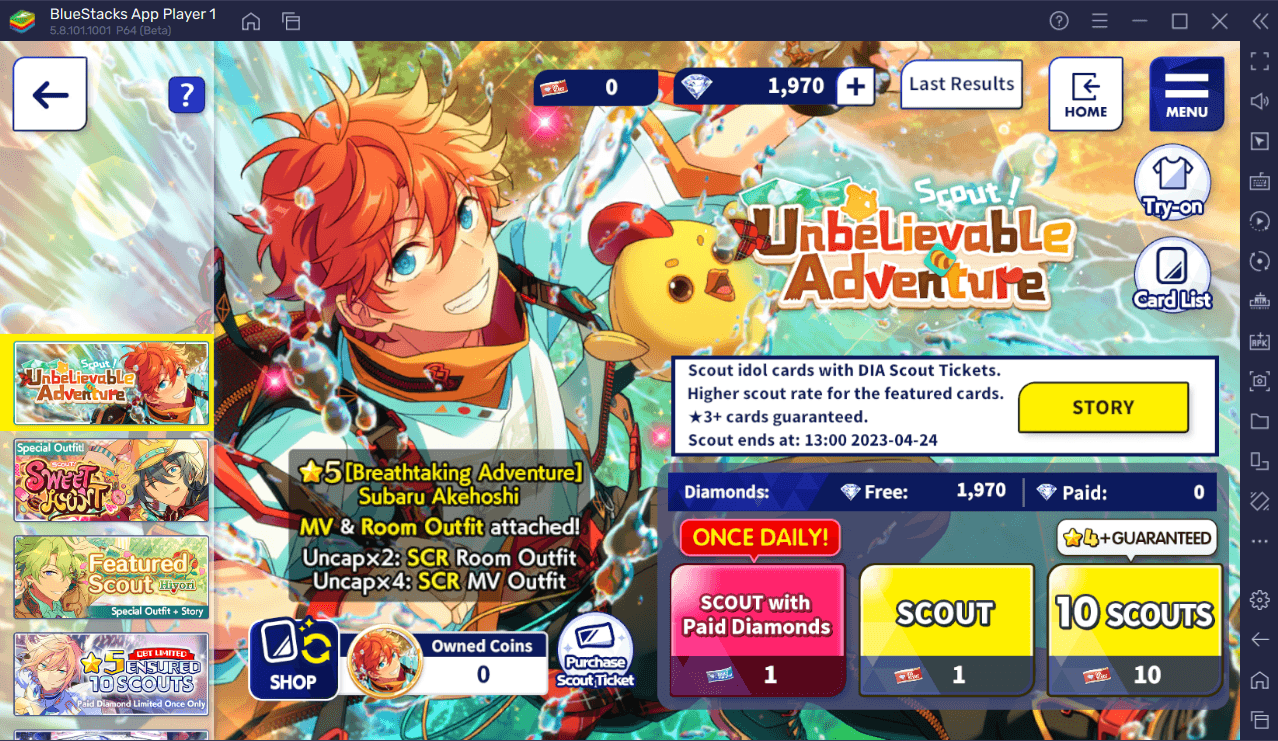
You can obtain new cards by spending DIA Scout Tickets. The game gives you free tickets when you first start out the game. In the Scout menu, there are various categories of idols that you can choose from. Each category contains a set of cards that you can get by chance when spending a ticket. You can view this by clicking on the “Card List” button. Additionally, you can also click on “Try on” to preview the artist’s 3D model and check them out before trying to pull for their card.
Story Mode
Ensemble Stars features a visual-novel style story mode that tells the story of the group members’ journey in the entertainment industry.
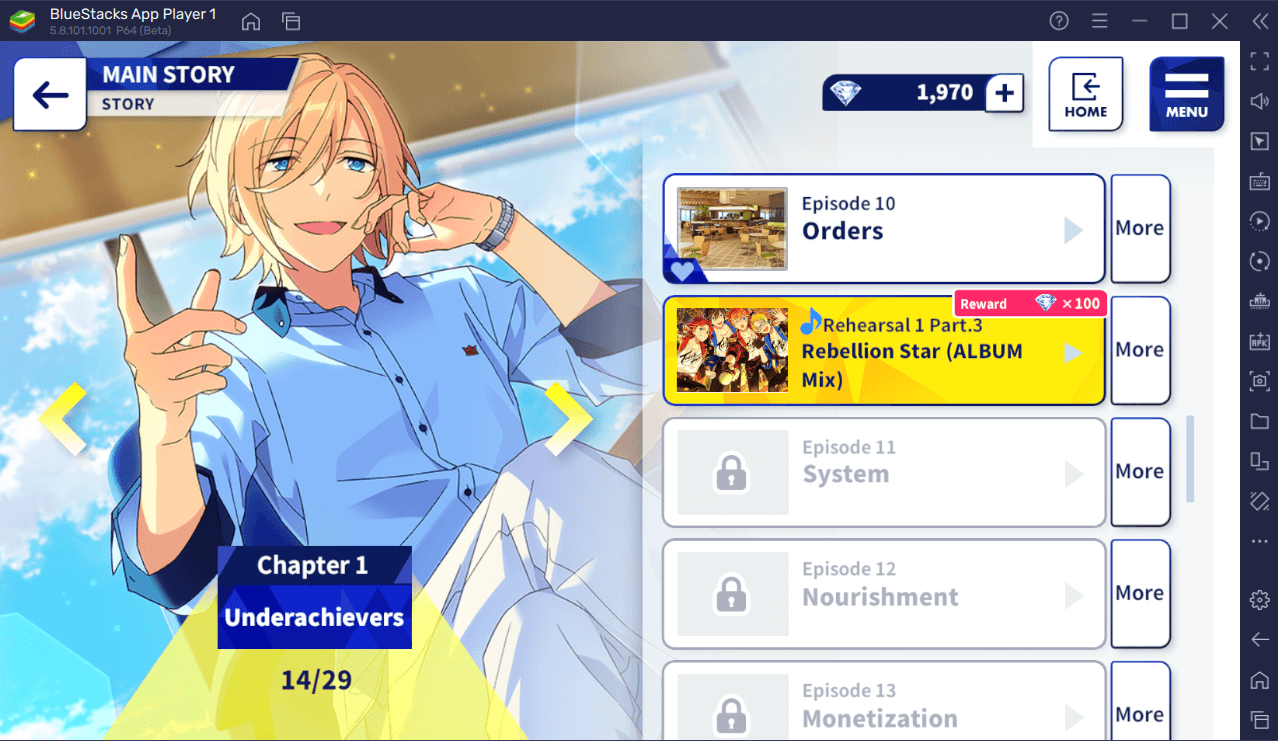
The main story consists of many chapters with each chapter containing episodes. The episodes can either be story levels where it is just like playing a visual novel. There are options to play these levels with voiced dialogues or without them.
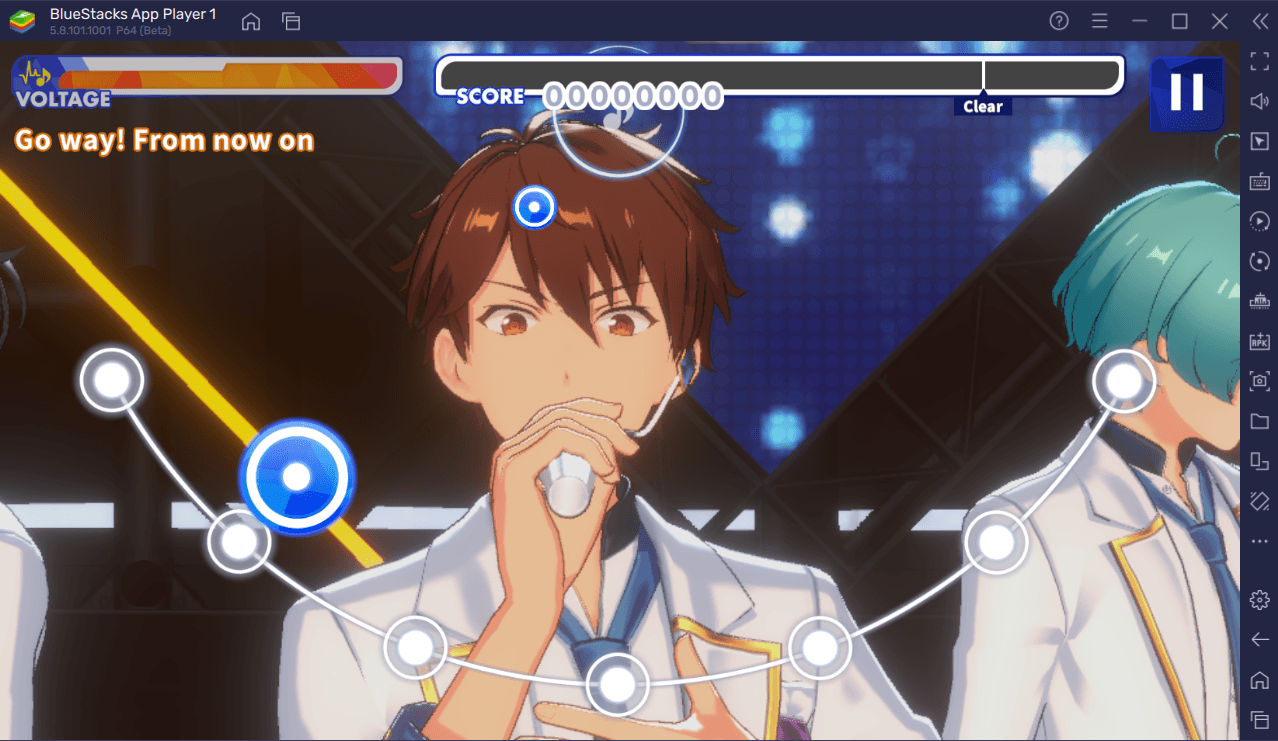
Some levels are rehearsal levels where you play as the members through a rhythm game. There are no limitations in the number of attempts. You only need to reach the required target score to proceed to the next level and obtain Diamonds (premium currency). Completing the rehearsal stage for the first time unlocks two special missions where you can earn more diamonds. Additionally, you may also obtain EXP Tickets (for upgrading artists) and Gems.
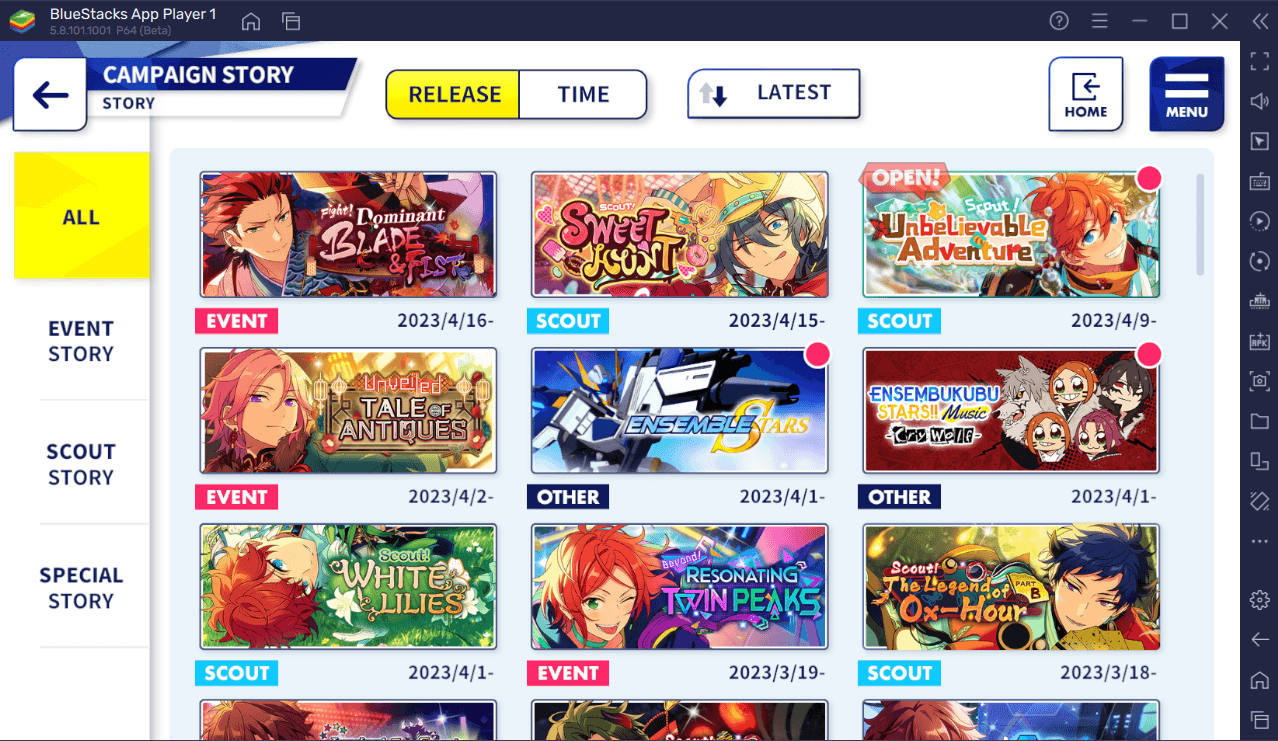
Aside from the main story, you can also play campaign stories which are essentially limited-time stories that center around specific characters. You can play through these campaigns to earn bonus diamonds. Note that some campaign stories can only be unlocked if you own the artist card of the character featured in the story.
Playing the Live Stage
The bread and butter of Ensemble Stars is its rhythm game levels where you control the group members during their performance. These levels are called Live Stages but they may also be called rehearsals when playing the main story.
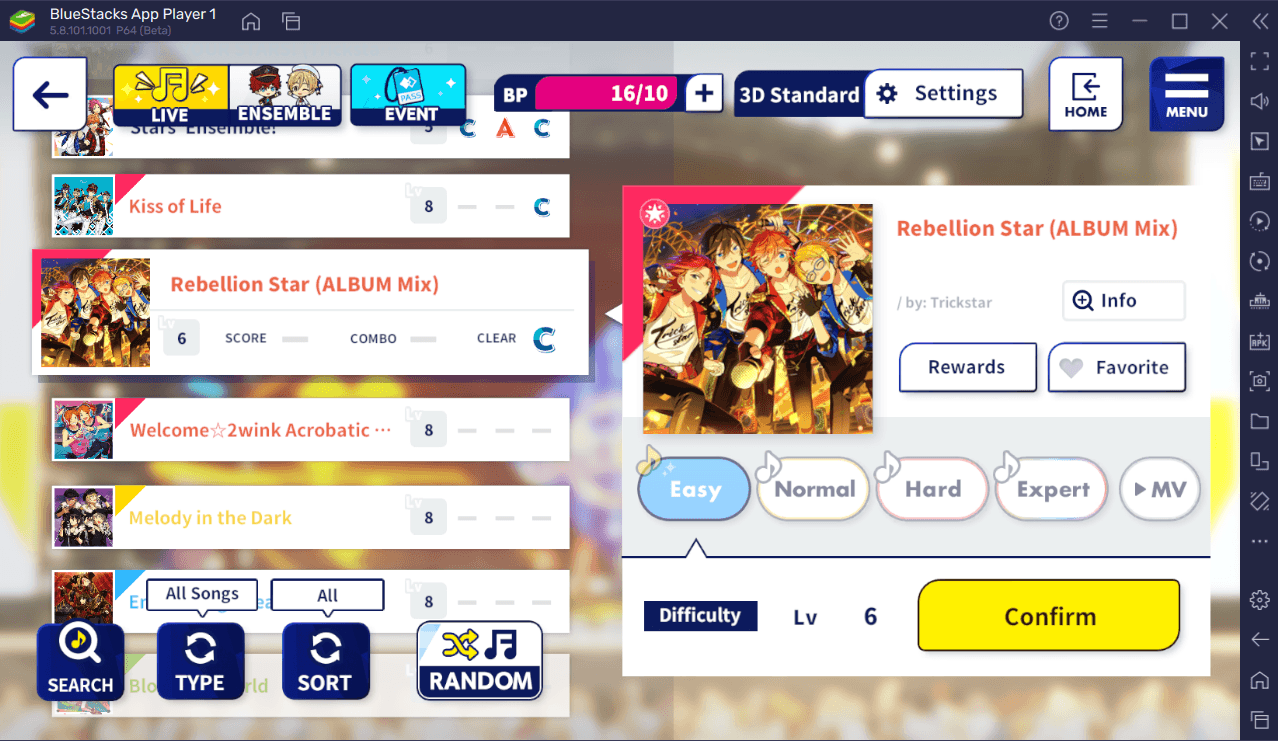
There is a myriad of songs that you can play in Ensemble Stars. Each song can be played on easy, normal, hard, and expert difficulties. Playing a song costs BP which is like a stamina level. If you do not have enough BP, you cannot play live stages. However, playing rehearsals in the main story do not require BP.
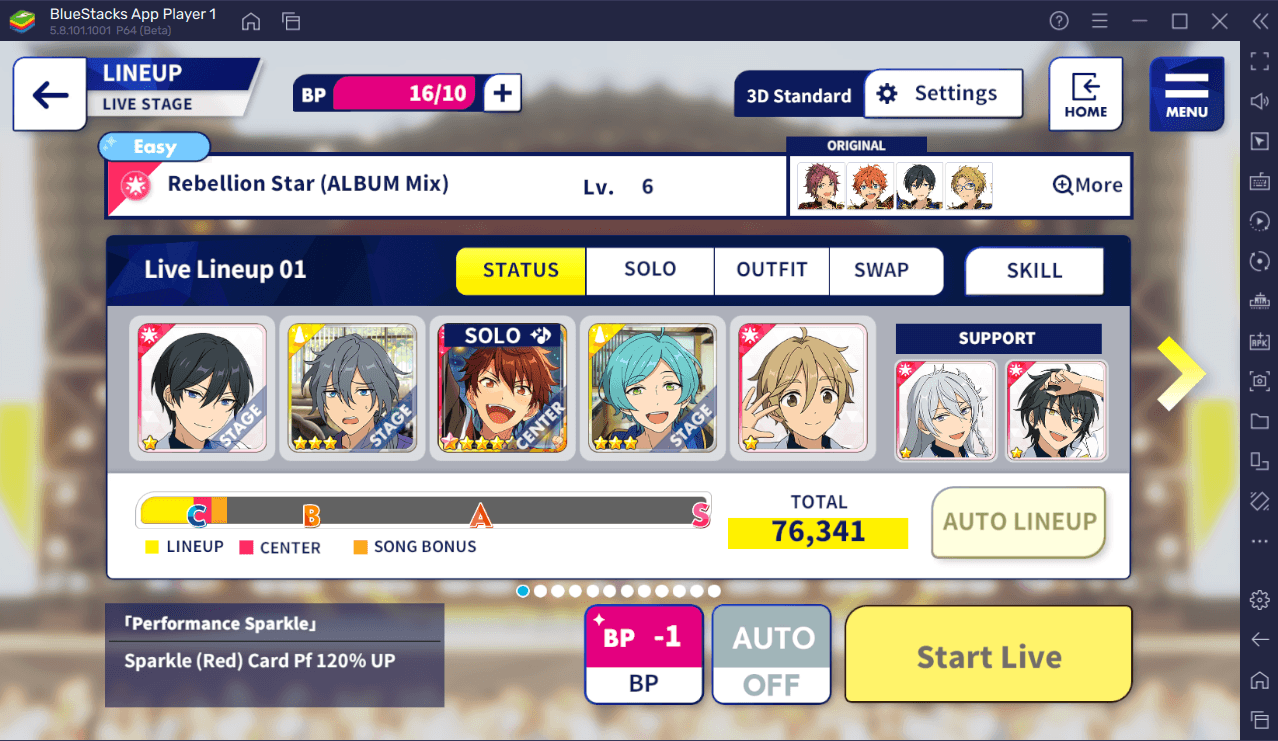
Before performing a song, you must select who will be part of the lineup. The quality of members in your lineup can determine the maximum score that you can reach in the stage. You may assign up to five members and two support members. You can click on “Auto Lineup” to let the game choose the best members for you. Another thing you can select is which member will have a solo performance during the stage.
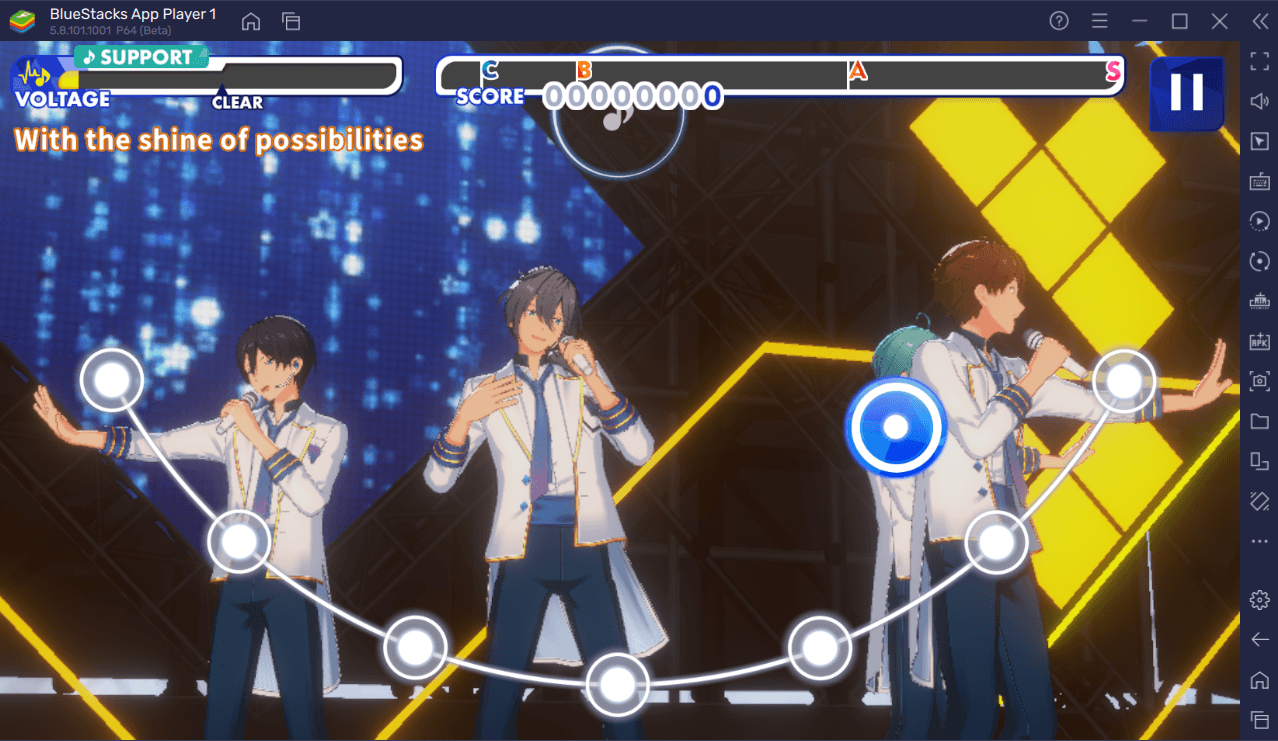
The live stage consists of multiple nodes that are lined up in a curve. As the artists perform, notes fall down onto these nodes and you must click on them at the exact moment they land. The closer they are to the node, the more points you get. However in the case of playing with BlueStacks, you can activate nodes by pressing the key assigned to them. You can customize the controls to your liking by following this guide. When you successfully activate multiple nodes consecutively, you earn a combo which can multiply your final score.
Upgrading Artist Cards
Artists can be improved, which ultimately allows you to earn higher scores in live performances or rehearsals.
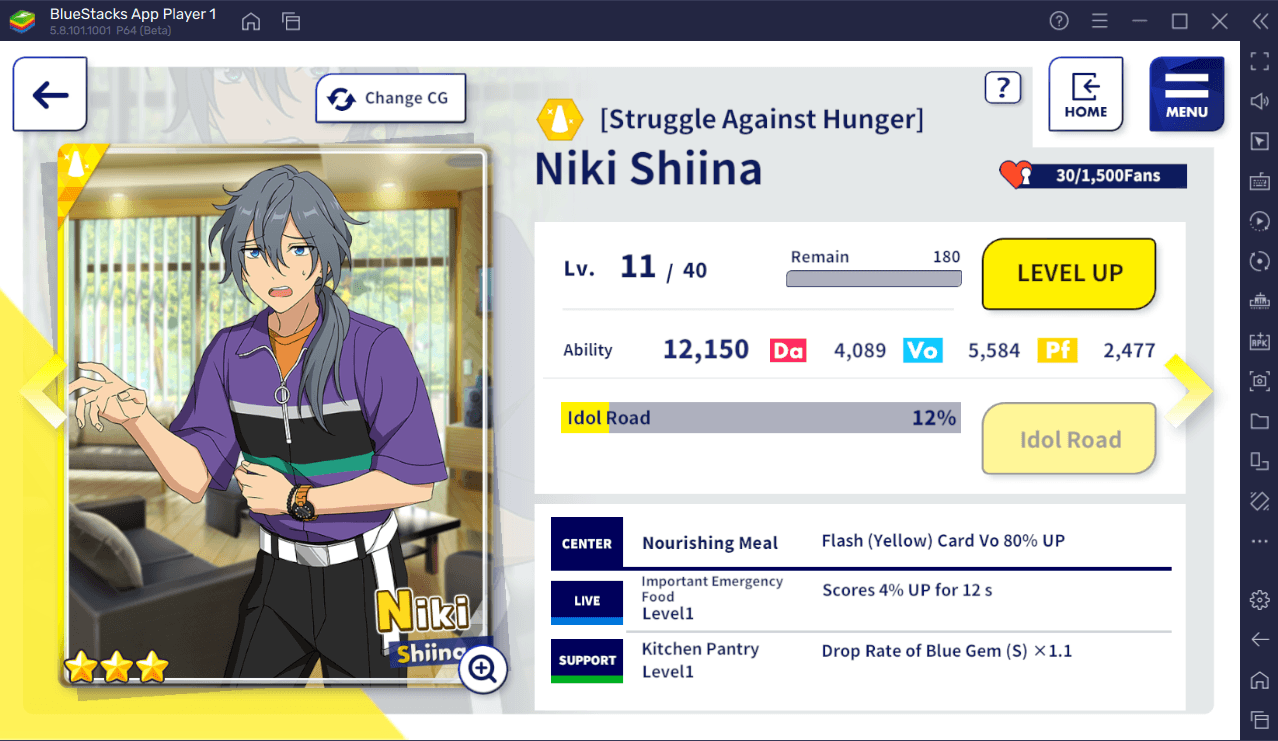
You can level up an an artist to improve their three abilities: dance (Da), vocal (Vo), and performance (Pf). These abilities make up the capability of an idol as a live stage performer. An artist can be leveled up by spending EXP Tickets which come in small, medium, and large sizes. The bigger the EXP Ticket is, the more EXP they give. You may spend several tickets just to earn enough EXP to promote the artist to the next level.

